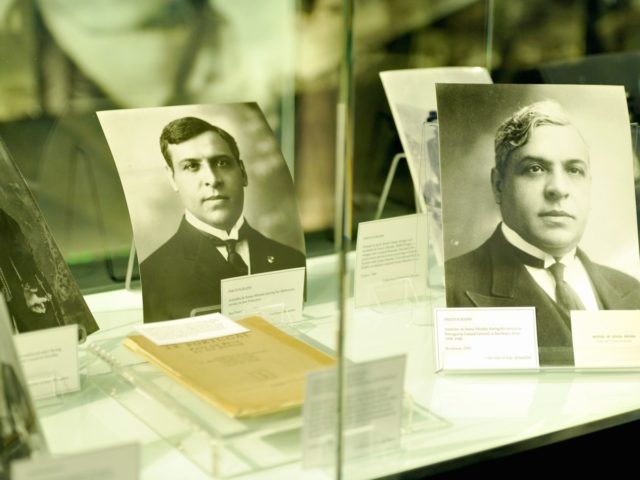ROME — Pope Francis declared June 17 the “Day of Conscience,” in honor of a Portuguese diplomat who single-handedly saved some 12,000 Jews during World War II at the cost of his own career, honor, and livelihood.
“Today is the ‘Day of Conscience,’ inspired by the witness of the Portuguese diplomat Aristides de Sousa Mendes, who around 80 years ago decided to follow the voice of his conscience and saved the lives of thousands of Jews and other persecuted peoples,” the pope said in an appeal at the end of his General Audience Wednesday.
“May freedom of conscience be respected always and everywhere, and may every Christian give the example of the consistency of an upright conscience enlightened by the Word of God,” he said.
On June 17, 1940, Aristides de Sousa Mendes, the Portuguese consul to Bordeaux, France, set up a production line at which in the coming days he issued 30,000 visas, passports, and travel documents to help dissidents and refugees escape the Nazi occupation, after the Germans had invaded France the month before.
Of those who received the papers, 12,000 were Jews — about ten times the number saved by Oskar Schindler — in direct contravention of the infamous “Circular 14” issued by Portuguese dictator, António de Oliveira Salazar, in appeasement to Hitler. The decree stipulated that no Jews or dissidents were to be granted passage to Portugal.
“I cannot allow all you people to die,” the consul had announced to his staff several days prior. “Many of you are Jews, and our constitution clearly states that neither the religion nor the political beliefs of foreigners can be used as a pretext for refusing to allow them to stay in Portugal.”
“The only way I can respect my faith as a Christian is to act in accordance with the dictates of my conscience,” he told them.
Finding that he had been disobeyed, Salazar was furious and had Sousa Mendes hauled back to Lisbon where he declared him mentally unfit for his diplomatic role.
“Even if I am dismissed,” Sousa Mendes said, “I can only act as a Christian, as my conscience tells me.”
Yet Salazar went beyond dismissing Sousa Mendes, stripping him of his diplomatic status, his retirement pension, and his right to practice law. He was declared “a disgraced non-person” and the state ordered that no one was to reach out to him or his family. His 15 children, too, were blacklisted and prevented from attending university or finding gainful employment and all but one left the country.
He was treated as a pariah for 14 years and eventually died in 1954 in abject poverty in a Franciscan monastery. Prior to his death, Sousa Mendes declared: “I could not have acted otherwise, and I, therefore, accept all that has befallen me with love.”
In 1966, the state of Israel declared Sousa Mendes to be one of the “Righteous Among the Nations,” an honor given to those who assisted Jews during the war. Holocaust historian Yehuda Bauer described Sousa Mendes’ heroic act as “perhaps the largest rescue action by a single individual during the Holocaust.”
Finally, in 1988 the Portuguese parliament officially dismissed all charges against Sousa Mendes, restoring his diplomatic status and promoting him to the rank of ambassador.
This past June 9, Portugal granted official recognition to its formerly disgraced diplomat and parliament ruled that a monument in the National Pantheon should bear his name.

COMMENTS
Please let us know if you're having issues with commenting.